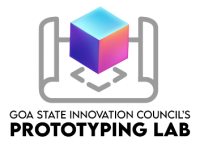Unique Registration Number: GSInC-I-000317
Innovator Name:
Suyash Mirchandani
Pritika Barshilia
Name of a Mentor:- Dr. Damodar Reddy Edla
Name of School/College/Startup/Organisation: National Institute of Technology, Goa
Contact No: +917987699041
Contact Email: suyash.bhopal2002@gmai.com
Project Objective:
The primary objective of this project is to develop an accurate and reliable lie detection system using EEG signal analysis through Brain-Computer Interface (BCI) technology. The goal is to classify whether a person is lying or telling the truth by analyzing their EEG signals, overcoming the limitations of traditional polygraph tests which can be easily manipulated.
Abstract:
- The applications of lie detection are vast, ranging from criminal polygraph testing to employee recruitment screenings. The accuracy of lie detection is crucial; therefore, it is vital to correctly classify whether the person under consideration is lying or not. Traditional polygraph tests monitor the subject’s physiological responses, which can be easily manipulated by the subject, leading to incorrect conclusions. In contrast, EEG (electroencephalography) signal analysis of the subject undergoing the lie detection experiment utilizing Brain-Computer Interface (BCI) technology has gained popularity in recent years as the subject cannot alter the nature of their EEG signal responses consciously, unlike their physiological responses. This study focuses on acquiring EEG signals from volunteers undergoing the lie detection experiment. Two datasets have been used for training the model, one private and one obtained from an open-source platform, with the dataset size augmented to increase the size of the dataset and for better adaptability. Signal noising techniques were implemented on the collected signals to stimulate real-world scenarios, thereby generalizing the model. The most significant features were then extracted using a stacked autoencoder model. Finally, a classification algorithm inspired by multiple Convolutional Neural Network (CNN) models was implemented to determine whether the subject was lying or telling the truth. To optimize the model’s performance, a novel combination of principal component analysis (PCA) and the genetic algorithm (GA) was applied to fine-tune the model parameters. The study achieved an accuracy of 99.7% on the privately recorded dataset and 100% on the public dataset.
Project Outcome/result/findings:
The project resulted in the development of a highly accurate lie detection system using EEG signals. The final model achieved an impressive accuracy of 99.7% on the privately recorded dataset and 100% on the public dataset. This demonstrates the effectiveness of the proposed methodology in accurately classifying whether a subject is lying or telling the truth, significantly outperforming traditional polygraph tests.
Innovative Approach:
- This project leverages several innovative techniques to enhance lie detection accuracy. By utilizing EEG signal analysis, it overcomes the limitations of traditional polygraph tests, providing a more reliable measure as subjects cannot consciously alter their EEG responses. The dataset size was augmented, and signal noising techniques were applied to create a robust model capable of handling real-world scenarios. Significant features were extracted using a stacked autoencoder model, while a classification algorithm inspired by multiple Convolutional Neural Network (CNN) models was implemented to accurately determine if a subject was lying or telling the truth. Additionally, the model’s parameters were fine-tuned using a novel combination of principal component analysis (PCA) and the genetic algorithm (GA), resulting in outstanding performance and accuracy.
